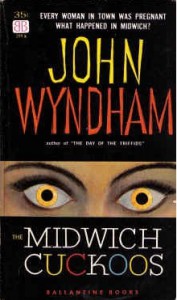The Fear of Change

I'm going to have to be honest and say that I really didn't like this book all that much, which from glancing over my friends' reviews seems to put me at odds with pretty much all of them (or at least the ones who actually wrote something). Mind you, the one thing that I did like about it (or at least my copy) is the little sticker on it that says £1.50, which brings back memories of the time I was in London and discovered this really cool second-hand bookshop in Leicester Square (which is where I actually purchased it). Actually, when I am over there later this year I'm going to have to go back into the bookshop, go up to the owner, and say 'Thucydides'.
I guess the reason that I didn't particularly like this book, other than the fact that after the first couple of chapters it became really dry and boring) was that it reminded me of this film that I didn't like all that much. Well, I probably shouldn't say that it reminded me of the film because the film was actually based on the book:

Here is the poster of the French version of the film:

(I'm studying French at the moment, so I have this fascination with anything and everything written in French, not that I can actually read it).
Anyway, for those who haven't seen the film (or read the book because I suspect, or hope, that most people on Goodreads go for the book as opposed to the film, unless the book is pretty bad and one simply wants to watch a film where one doesn't have to think all that much) the story is about that village that basically loses a day – namely everybody falls asleep and when they wake up all of the woman are pregnant. When they give birth the children (or actually Children as they have a capital C) are somewhat not quite human – they don't possess any of the genetic traits of the parents, and they have these powerful psychic powers that allows them to communicate telepathically and to control people's minds. Also the Children seem to learn, and to age, much faster than normal humans. The rest of the book is about what the authorities are going to do with the Children.
Despite the fact that I wasn't a huge fan of this book there were still a couple of interesting concepts that came out of it, one of them being that of evolution. In fact near the end of the book a discussion arises as to one of the flaws of evolution – the missing link. This is still a hotly debated topic even today, despite the fact that many of us secularists tend to write off the idea of intelligent design as being some crack-pot religious fundamentalist ideal (even though I do believe that they have some good points). However the idea that comes out of this book is that humanity was originally seeded by an alien race and that the Children happen to be the next stage of our evolution. To many of us that seems to be almost as out there as the idea of intelligent design (though in many ways the two theories are actually supportive of each other, especially when the concept of the Christian God is removed from creationism, which ends up being, yep, you guessed it, Intelligent design).
The problem with this argument (as is the case with any argument) is that no matter what you state your position as being you are going to inevitably rub somebody up the wrong way, which is one of the problems that I face being a left-wing Christian. If I say that there are merits in the concept of intelligent design I piss off the secularists while if I make the suggestion that I believe that there are merits in the concept of evolution then I piss off the Christians (or at least the Christian fundamentalists). However I understand both sides of the argument – by taking out a the existence of a divine creator then then there is no foundations for our legal system – it simply becomes objective to the point where we simply do things that we believe in our own heart to be right. However the opposite problem arises when we put the concept of a divine creator in place – we begin to become incredibly legalistic and the idea of 'do unto others as you would have done unto you' goes out of the window and the church suddenly becomes a form of morality police, where the church's idea of what is right and wrong becomes the only idea, despite the fact that their interpretation of the law may not actually be correct.
This also creates another ethical dilemma – what to do with the Children. It becomes clear that the Children aren't actually all that friendly, and will act in ways to protect themselves. However the story takes place in England, which means that one simply cannot bomb the village out of existence (as happened in Russia) or simply murder all of the children (as happened in other places). As is suggested, anybody that takes any action against the Children is doomed to failure, either because the Children will become aware of what is happening and put a stop to it, or the political fallout will be so great that the party that decides to act will be cast out into the political wilderness forever. However, they simply cannot do nothing simply because in doing so will mean that the Children will become ever more powerful, and when they actually become a threat then it will be too late.
Mind you, it seems to also be the case of a fear of the unknown. If the Children are the next stage of human evolution then what is actually happening is that humanity is preventing their own progress. Actually, this seems to be one of the traits of humanity – stifling our own progress. Intelligent children are teased and bullied at school, and competent people are passed over for promotion in favour of the well spoken and connected people. Funding is cut to the arts and the sciences in favour of business friendly subjects, and a movement towards a green energy future is constantly assaulted because there is too much money to be made out of fossil fuels. Most of all, one of the things that prevent many of us doing what we would love to do is that there is no money in it so we are left stuck in mind-numbing office jobs making money for people who have way to much of it anyway.
 2
2


